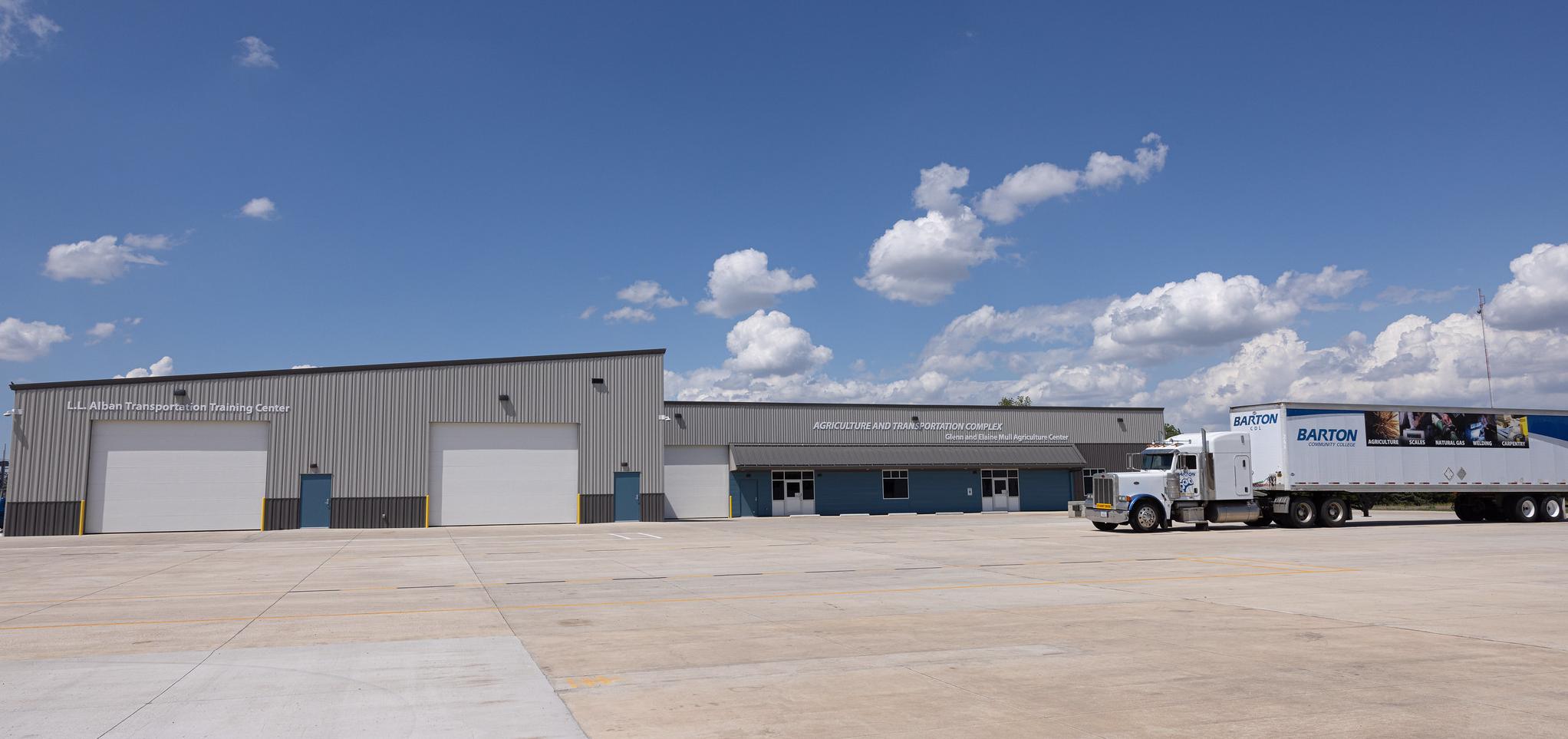
Start at Barton. Transfer with Confidence.
Barton’s Liberal Studies and Career Technical Programs in Agriculture is a flexible transfer degree designed for students planning to pursue a bachelor’s in a wide range of agriculture-related fields. This program provides the academic foundation to continue your studies at a four-year university in a multitude of specialties.
Agriculture is Kansas' leading industry and a powerful economic force—offering a wide range of career opportunities. Whether you're earning a certificate or a two-year degree, many roles provide excellent wages, strong benefits, and long-term career potential in this essential and growing field.
Barton Benefits
At Barton, our areas of study are designed to equip students with the knowledge, skills, and critical thinking necessary to thrive in today’s world. Whether you're just beginning your educational journey or advancing your career, we offer flexible and rigorous programs that support your goals.
Instructional Excellence
- Small Class Sizes – Get one-on-one attention and personalized instruction from knowledgeable faculty.
- Hands-On Learning – Gain real-world experience through practical labs, farm activities, and livestock handling.
- Industry Field Trips – Explore career paths and agricultural operations through guided site visits.
Student Support & Campus Life
- Caring, Experienced Faculty – Instructors are committed to your success both in and out of the classroom.
- Strong Student Support System – Academic, career, and personal support services available every step of the way.
- Student Organizations – Join groups like Collegiate Farm Bureau to enhance your college experience and network with agriculture industry professionals.
- Flexible Advisement – Prepare for a career in two years or less or seamlessly transfer to a four-year institution.
After completing a bachelor’s degree, you’ll be prepared for careers in areas such as:
- Agribusiness or Ag Finance
- Crop and Livestock Production
- Agricultural Education or Extension
- Soil and Environmental Science
- Precision Ag and Ag Technology
- Government or Policy Work
Start strong at Barton with affordable tuition, hands-on learning, and a clear path to your next step in agriculture.
Investing in the Future of Agriculture and Skilled Trades
Barton is excited to announce the newly constructed Ag and Transportation Complex—a dynamic facility that will expand learning opportunities and strengthen workforce training in high-demand fields. Once complete, the facility will feature modern classrooms and hands-on training space for Barton's Ag programs.
A Transformational Investment
With an estimated construction cost of $3.6 million, the project is supported by a 1:1 matching grant through federal stimulus funds from the American Rescue Plan Act (ARPA), awarded by the Kansas Department of Commerce. Additional support is being provided through private donations and 60% state tax credits approved for capital improvements at Kansas community and technical colleges.
Community Partnerships Powering Progress
A significant leadership gift from American Plains Co-op—and a matching contribution from one of its partners—has doubled the impact of their investment. This commitment will not only support the construction of the new facility but also help expand hands-on learning and career pathways for Barton’s agriculture students for years to come.
Industry Support
Real Connections. Real Opportunities.
Barton’s Agriculture Program is backed by strong industry support, helping students transition smoothly from the classroom to the workforce.
- Career Placement & Employment Support – Our industry partners are committed to helping students find meaningful employment after program completion.
- Internships & Work-Based Learning – Gain hands-on experience through internships and occupational work opportunities that build your resume and skillset.
- Guest Speakers & Industry Insight – Learn directly from agricultural professionals who bring real-world expertise into the classroom.
These connections ensure that students graduate with not only the knowledge, but also the industry relationships needed to succeed.
Associate in Science Degree (transfer degree)
If you plan to attend Barton and then transfer to a four-year school, please consult with your advisor regarding classes to take at Barton to help you in a smooth transition to your four-year transfer school. Students should also contact the college/university to where they are transferring concerning degree requirements within the appropriate department or college.
Agriculture (degree guide)
Check out the Course Search for a full listing of courses available.
View the full list of Curriculum Guides (applicable for students admitted prior to Fall 2024) and Degree Maps (applicable for students admitted Fall 2024 and after).
Visit the What Can I Do with My Major? webpage to find helpful resources on career paths, employers and more!
- Agriculture graduates are in high demand whether they achieve a two-year or four-year degree
- Crop protection applicator salaries start at $36,000 annually. Source: Barton Agriculture Advisory Board
- B.S. degrees in agriculture can expect to earn between $41,000 to $81,000 annually in the state of Kansas. Source: Kansas Occupational Wage and Outlook Reports
- "Agriculture employs 17% of the U.S. workforce containing more than 24 million American workers to produce, process, sell and trade the nation’s food and fiber” Source: Gary Niemeyer, National Corn Crowers Association,Testifying before the US Senate Agriculture, Nutrition and Forestry Committee
The following schools are more popular for Agriculture related majors to transfer to after attending Barton.
Fort Hays State University
Most common Agriculture related majors transferring to FHSU include: Agriculture Business, Agriculture Education, Agriculture Education, General Agriculture, Agronomy, Animal Science, and Beef Cattle Management.
Kansas State University
Most common Agriculture related majors transferring to K-State include: Agriculture Economics/Agri-Business; Agriculture Education; Agriculture Journalism; Agriculture Technology Management; Agronomy - Business & Industry; Agronomy - Consulting & Production; Agronomy - Range Management; Agronomy - Soil and Environmental Science: Plant Science and Biotechnology; Animal Science - Business/Production/Communication/Animal Products; Animal Science - BioScience/Biotechnology; Animal Science and Industry - Pre-Veterinary Medicine; Feed Science and Management; Food Science; Horticulture - Science, Nursery Management, Production, Greenhouse Management, Landscape, Golf Course Management; Horticulture Therapy; Milling Science; Bakery Science; and Park Management and Conservation

